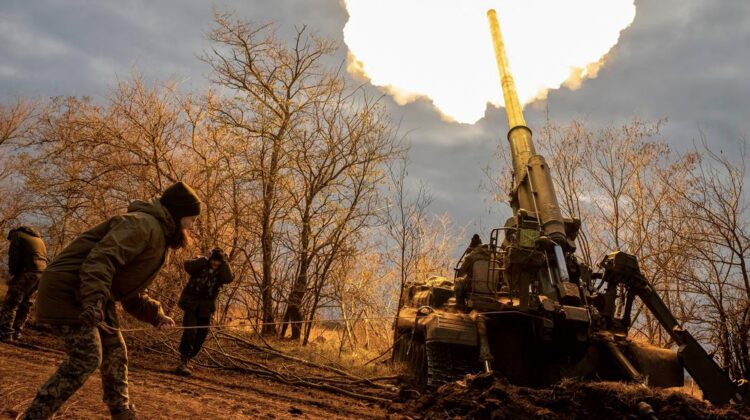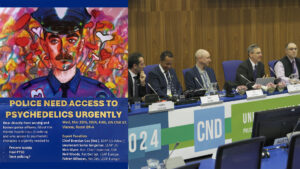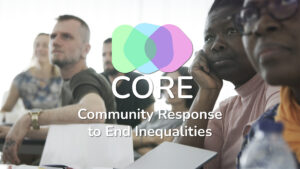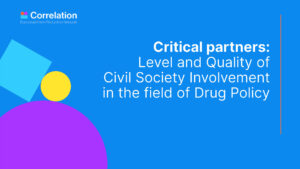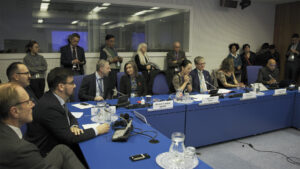We found out about the war on the morning of 24 February. All the news channels were screaming about it. We were literally crushed by the news: missile attacks on Kiev, Odessa, Dnipro, Lviv, Ivano-Frankivsk… At the same time gigantic military columns were heading towards Kiev, Kharkiv, Kherson, Mykolaiv, Odessa…
Although everything that had been happening on Ukraine’s borders in recent weeks and even months – the huge number of battalion-tactical groups of Russia’s army, the aggressive rhetoric of Russia’s leadership – was literally screaming that war was about to start, I, like many Ukrainians, considered war to be unlikely. Not because I believed in the prudence of the Russian authorities, but rather because I did not believe in the possibility of starting a war such as this in the heart of Europe in the 21st century.
Well, I was wrong. A country in a state of progressive insanity has attacked my Ukraine. And now war has become our new reality.
At that time we had already lived in Kherson for several years. It was just over 100 kilometers from Kherson to Crimea[1] and we realized that there were only hours, at best days, before the war would literally come to our house.
We spent most of the day on 24 February packing and searching for transport to take our family from Kherson, somewhere inland to the west. But these plans were doomed to fail. Partly because we did not have so many contacts in Kherson to whom such a request could be made, as we only very recently moved here from occupied Crimea, but also due to the fact that petrol disappeared from the city’s petrol stations in the first hours after the war began. No matter how much money we offered to evacuate, we were refused. One BlaBlaCar driver[2] did respond and even took an advance payment, but never showed up again. Hopefully he needed the money more than we did. Anyway, by the end of the day on February 24 it was clear that we were staying in Kherson.
Igor Kuzmenko, a filmmaker and co-founder of the Drug Users News (DUNews) documentary studio, needs your help! Please make a donation today to support his work to produce a series of documentaries about the community of people who use drugs in Ukraine during the war. Movies about the people, organizations, and networks that save thousands of Ukrainians from death and give hope every day.
Or send any amount via bank transfer to one of the following accounts:
Igor Kuzmenko
JSC UNIVERSAL BANK, Kyiv, Ukraine
Euro account:
IBAN: UA103220010000026208334747018
SWIFT: UNJSUAUKXXX
USD account
IBAN: UA753220010000026206334939334
SWIFT: UNJSUAUKXXX
Along with the advance of ground troops, the Russians continued missile attacks across Ukraine. And at sea – off the coasts of Mykolaiv and Odessa – there were ships of the Russian Black Sea Fleet, some of which were also in the Sea of Azov, near Berdyansk and Mariupol. Media reports included the phrase “possible landing from the sea”. Odessa’s beaches were mined and anti-tank “urchins” appeared on the city streets. A curfew was imposed in Ukrainian cities, and President Vladimir Zelensky[3] appeared on TV to address the nation about the situation and the outbreak of war with Russia.
We read the news without stopping. It seemed like some kind of nightmare in which we were only in it for a while. After all, it was still the same quiet and peaceful city all around us, and once we turned off the phone, it would all be over. Ahead are Spring, the gentle Ukrainian sun, my favourite job, meetings with friends, exciting new TV series, and walks along the banks of the Dnieper.
I opened my eyes early the next morning and distinctly heard the sounds of close combat. There was alarming news on local internet chat rooms about Russian troops advancing towards Kherson.
They attacked the town over Antonovsky Bridge, there being no other way to get to the right bank of the Dnieper (where the town of Kherson is actually located) without swimming. There were fierce fights for the bridge. Our house was shuddering with explosions. The window panes were vibrating. That day we heard the air-raid alarm for the first time and saw planes in the sky. They were flying quite low and it was deafeningly loud. Remembering how they did it in war films, we taped the windows of the flat crosswise. Only instead of paper we used duct tape.
My wife and I went to the shop to buy food and cigarettes. The nearest supermarket was very crowded. They were buying up everything, even things that had been on the shelves for years. The air-raid alarms sounded almost incessantly outside, making me long for cover.
News reported on the situation in northern and eastern Ukraine – the Sumy, Kiev, Zhytomyr, Chernihiv, Kharkiv, Donetsk, and Zaporizhzhya regions. The enemy attacked. Like a cancerous tumour, it destroyed every living thing.
Over the next few days, the shops slowly began to run out of food, especially the items in high demand. Pharmacies stood empty. Bread was no longer sold – the city was running out of food supplies. Looters appeared. They were caught and tied to trees and poles. To ensure the safety of the people of the town, riot police units were organized. Armed with rubber truncheons, they patrolled the surrounding areas.
At the very end of February, despite heroic resistance by the Armed Forces of Ukraine and local territorial defense units, the enemy forced the Dnieper River and approached Kherson itself. Immediately they destroyed and completely looted the largest shopping center, Fabrika, located on the outskirts of the city just on the side of Antonovsky Bridge. Fighting continued in the city in places.

Messages appeared on the city’s Internet chatrooms asking people to identify those killed in the fighting in the city’s streets. The Ukrainian Armed Forces were retreating westwards towards Mykolaiv. On March 1, 2022, Russian military and Rosguardians[4] appeared in Kherson. Almost immediately, checkpoints were set up around the city and armed patrols and military equipment appeared.
The occupation of Kherson had begun.
Igor Kuzmenko
Footnotes
[1] Crimea is occupied and annexed by Russia but is Ukrainian territory, and the homeland of the author. It is from Crimea that Russia started the occupation of the rest of Ukraine.
[2] Car sharing community
[3] In the UK at least, the president’s name has usually been spelled Volodymyr Zelensky, Volodymyr Zelenskyy, or Volodymyr Zelenskiy. But never Vladimir, presumably to distance his name from that of Putin. I will leave it to you to decide which spelling you would like to use.
[4] The National Guard of the Russian Federation or Rosgvardiya is the internal military force of Russia, comprising an independent agency that reports directly to the President of Russia. This force is usually used against citizen protests within Russia.
Read the series by Igor Kuzmenko on how they survived the occupation in Kherson:
